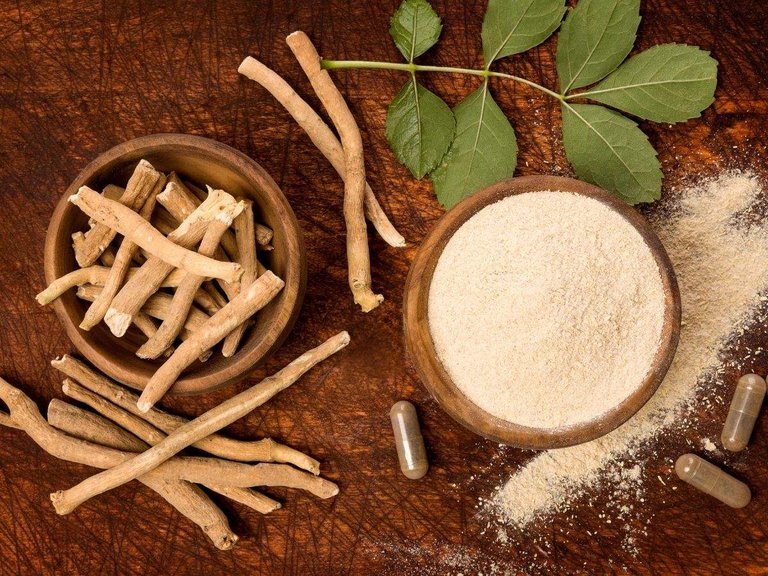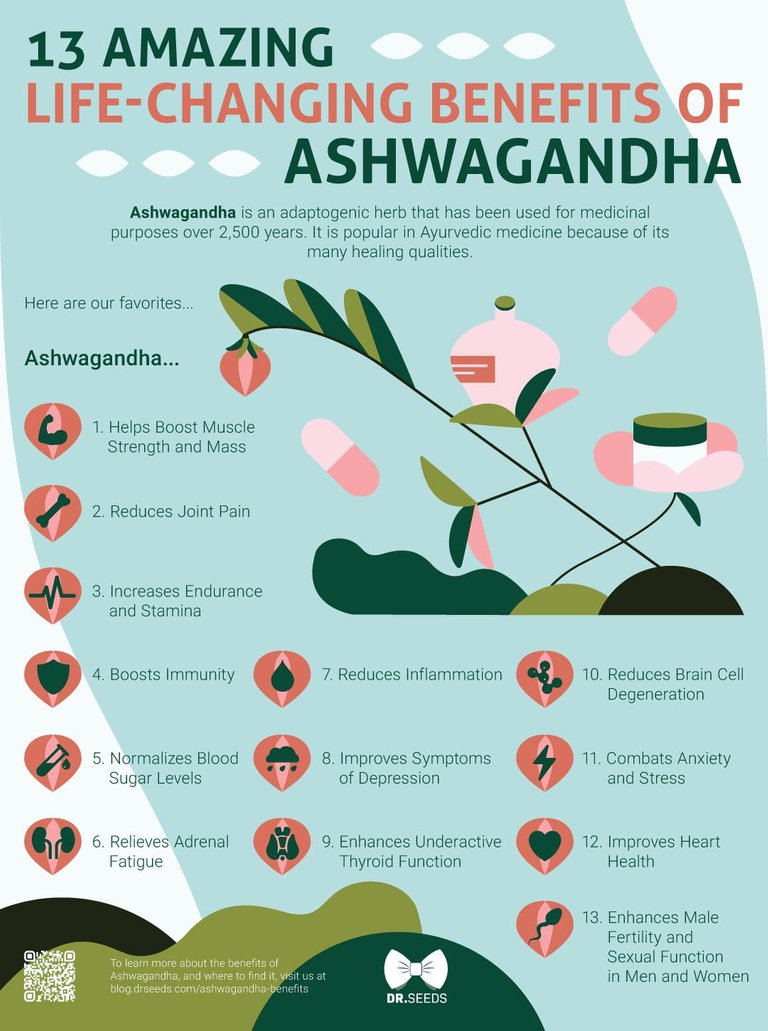Biohacking series: Ashwagandha
When I started to delve into the concepts of "biohacking" one of the first substances that marked me by name and supposed efficiency was "Ashwagandha". One of the main herbs in Ayurveda considered a sacred tonic for over 3,000 years.

Source
Its botanical name is Withania somnifera, and it also has some less popular nicknames than its Ayurvedic name, which in Sanskrit means: "Smell of a horse", due to its characteristic smell. Ashwagandha is from the Solanacea family, which can say a lot about her. Much of this family is naturally poisonous. Still, this herb has gained worldwide popularity for numerous benefits brought by popular culture, it is worth giving some examples of its potential.

Source
Although there are few conclusive studies (that's science), there is already some evidence that Ashwagandha has the ability to reduce blood sugar levels, and this shrub is also known to have some compounds that are very new to science (such as withaferin) which appears to be able to induce apoptosis which is the death of cancer cells. Another great observed benefit of Ashwagandha is the ability to reduce cortisol levels, in addition to relieving stress and anxiety as well. It still seems to have good potential in terms of sex hormones (improved testosterone levels and increased sperm motility). Continued use of it also appears to help boost muscle gain.

Source
Well, these are just some of the benefits, I didn't even mention memory, improving cholesterol and reducing inflammation. Anyway, it's a very interesting substance! I am currently going back to using it and will do my personal tests, if it has 50% of the suggested benefits, it will be a lot! Ashwagandha doses range from 300 to 1000 mg per day, which can and should be divided. In general it is a very safe substance, but possible interactions with other medications (especially sedatives) should be studied because they could end up intensifying its effect.

Source
Research sources for this article:
1, 2, 3, 4 and 5
Thômas Helon Blum

Português
Quando comecei a me aprofundar nos conceitos do "biohacking" uma das primeiras substâncias que me marcou pelo nome e pela suposta eficiência foi a "Ashwagandha". Uma das principais ervas do Ayurveda considerado um tônico sagrado por mais de 3.000 anos.

Source
Seu nome botânico é Withania somnifera, e tem ainda alguns apelidos menos populares que seu nome ayurvedico que em sanscrito quer dizer: "Cheiro de cavalo", devido a seu cheiro característico. Ashwagandha é da família das Solanaceas, o que já pode dizer muito sobre ela. Boa parte dessa família é venenosa por natureza. Ainda assim, esta erva ganhou popularidade mundial por inúmeros benefícios trazidos pela cultura popular, vale a pena dar alguns exemplos de seu potencial.

Source
Ainda que existam poucos estudos conclusivos (assim é a ciência), já existem algumas evidências de que a Ashwagandha tem capacidade de reduzir os níveis de açúcar no sangue, além disso sabe-se que esse arbusto tem alguns compostos muito novos para a ciência (como a withaferin) que parece ser capaz de induzir a apoptose que é a morte de células cancerígenas. Outro grande benefício observado da Ashwagandha é a capacidade de reduzir os níveis de cortisol, além disso, também aliviar o stress e a ansiedade. Parece ainda ter um bom potencial em termos de hormônios sexuais (melhores níveis de testosterona e aumento na mobilidade dos espermatozoides). Um uso contínuo dela parece também ajudar a potencializar o ganho muscular.

Source
Bem, esses são só alguns dos benefícios, nem falei da memória, da melhora do colesterol e da redução de inflamações. Enfim, é uma substância interessantíssima! Estou atualmente voltando a utiliza-la e farei meus testes pessoais, se ela tiver 50% dos benefícios sugeridos, já vai ser muita coisa! As doses de Ashwagandha variam entre 300 a 1000 mg por dia, que podem e devem ser fracionadas. De forma geral é uma substância bem segura, mas deve ser estudado possiveis interações com outros medicamentos (principalmente sedativos) por que poderia acabam intensificando seu efeito.

Source
Fontes de pesquisa para este artigo:
1, 2, 3, 4 e 5
What do you know about interference with medication for Hyperactive thyroid?
Hi! I'm sorry for answering so late! I honestly have no knowledge of Ashwagandha interfering with thyroid medications, but I would need to do more research to confirm. Maybe it has some thyroid stimulating role, really. But it's a good point to make, thanks for the question!